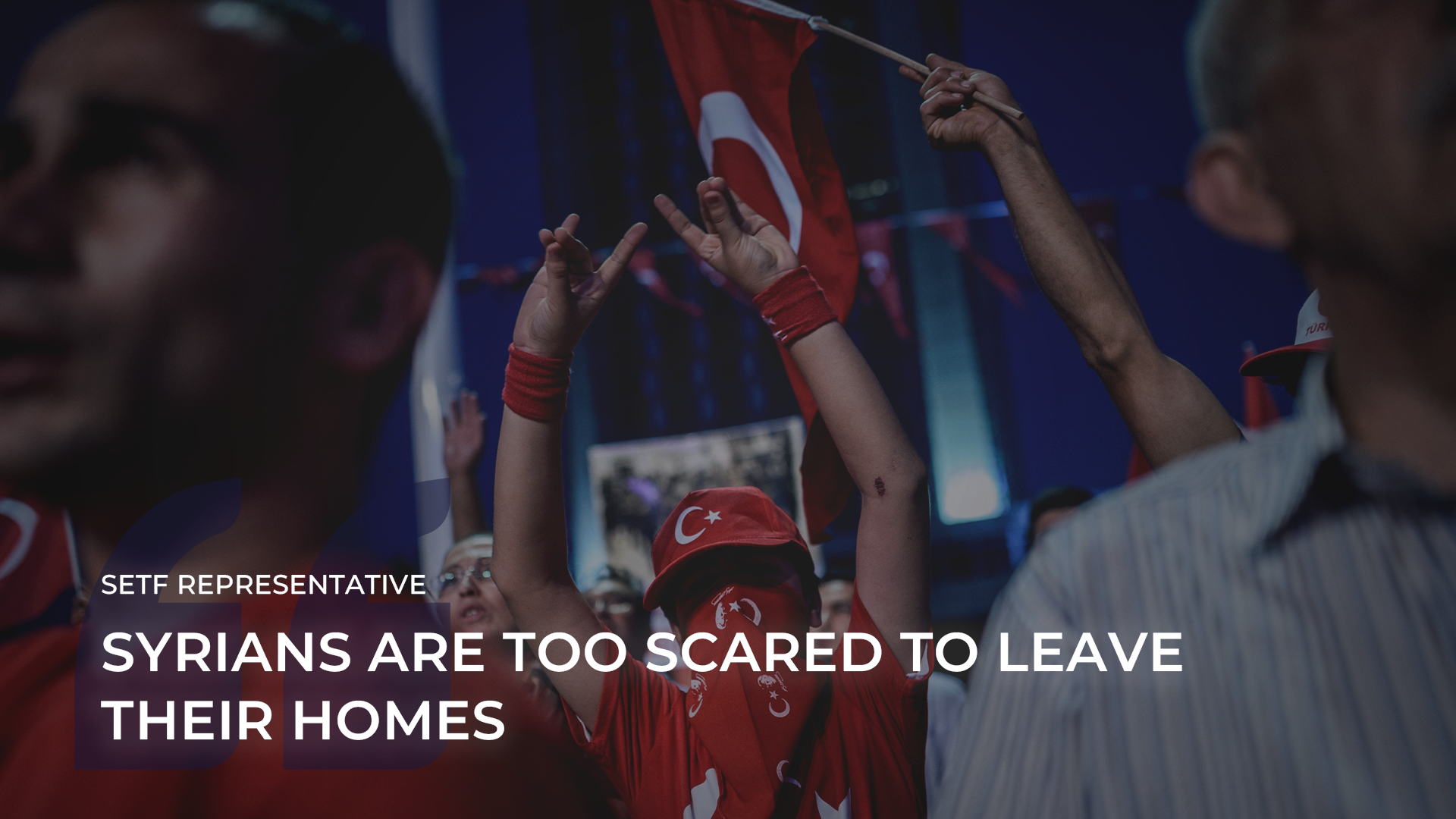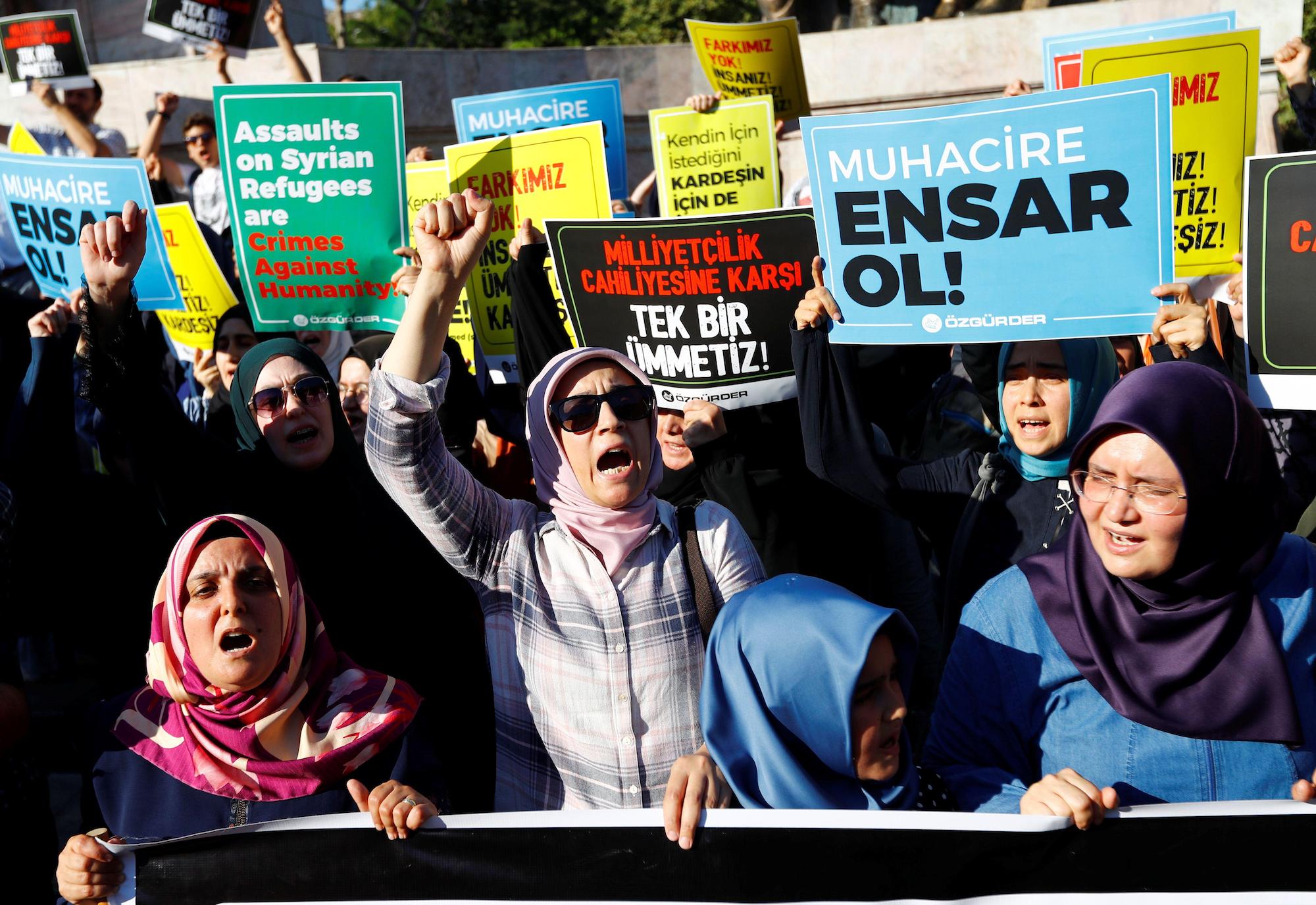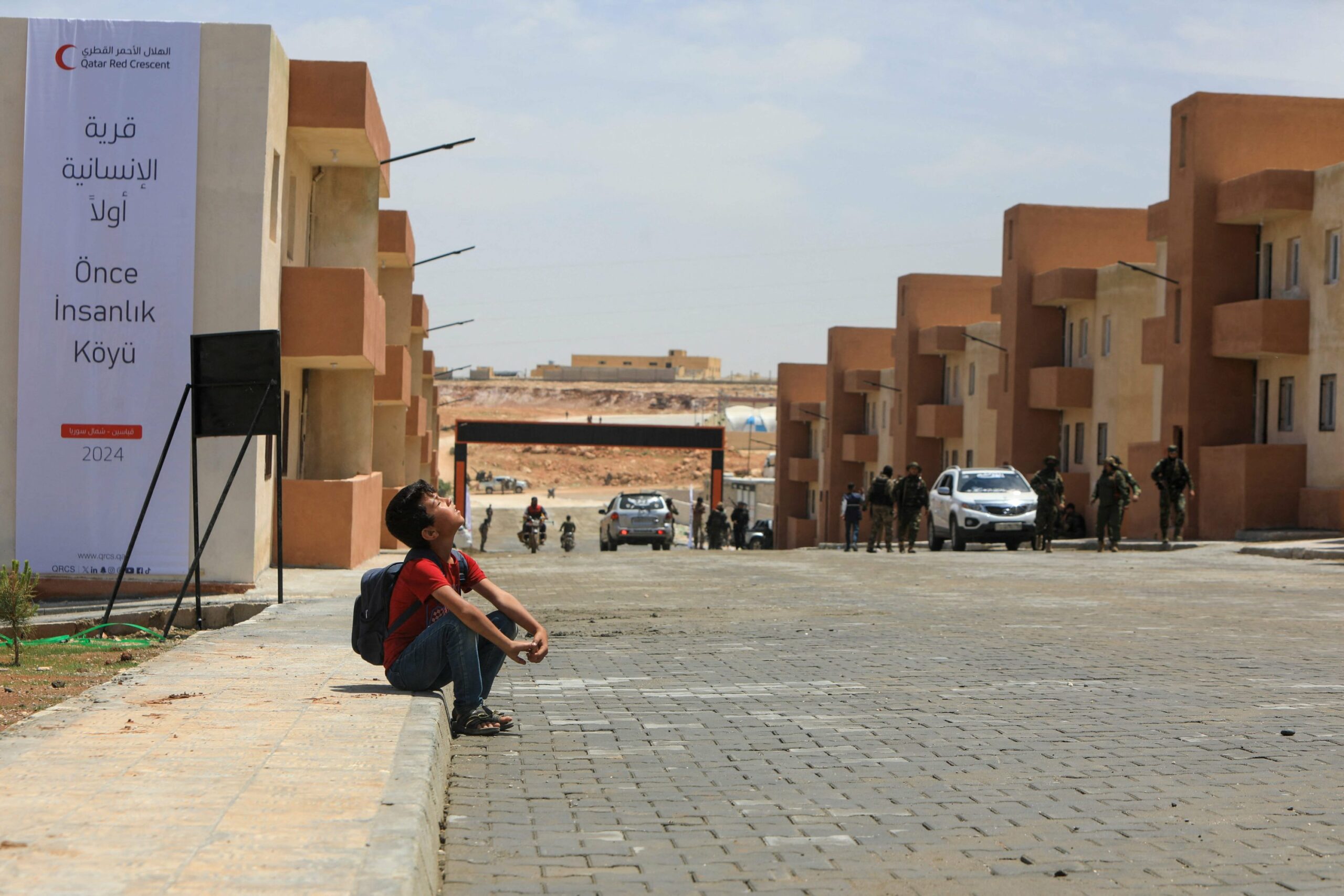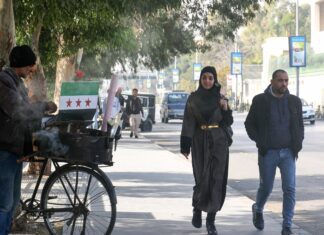
It was a sweltering night in late June 2024, searing flames illuminated the night sky over Kayseri, casting ominous shadows across a city gripped by fear and violence. The streets, once bustling with the ordinary hum of daily life, were now scenes of chaos reminiscent of a post-apocalyptic nightmare.
Rioters, armed with knives, sticks, and other make-shift weapons stalked the streets driven by a furious mix of nationalist fervor and deep-seated xenophobia, they tore through neighborhoods, leaving a trail of destruction in their wake. Homes were torched, cars overturned and set ablaze, and in the streets, Syrians were hunted like prey.
The terror in Kayseri, however, was not an isolated incident. It was the culmination of years of simmering tensions, fueled by a toxic brew of economic anxiety, political exploitation, and historical prejudices. For Syrian refugees, who once saw Turkey as a safe haven from the horrors of war, the events of June and July 2024 marked a brutal turning point.
“It is extremely horrifying and concerning to witness the treatment of Syrian refugees in Turkey,” a representative from the Syrian Emergency Task Force (SETF) told L24, “In several Turkish cities, angry groups of men have turned against the Syrian refugees living among them, damaging their shops and cars, assaulting them with fists and knives, and even murdering a teenage boy named Ahmad al-Nayef by stabbing him to death.”
As the fires in Kayseri burned, they brought to light the dark undercurrents of nationalism and racism that had been steadily rising in Turkey, a nation grappling with its national identity in an increasingly volatile world.
An Island of Refuge
By the end of 2023, there were 3.27 million registered Syrian refugees in Turkey, making it home to the largest number of refugees in the world. Since the beginning of the revolution in 2011, Turkey has been an island of refuge, playing a central role in providing safety and hospitality to millions of Syrians.
Over the years the number of refugees in the country has been declining. In 2021 there were 3.73 million while by 2022 this number dropped to 3.54 million. Additionally, the total number of voluntary returns to Syria between 2019 and 2023 was 114,372, with around 7,600 returns reported by October 2023 alone.

The Rise of Anti-Foreigner Sentiment
The recent surge in anti-foreigner sentiment in Turkey is driven by a combination of economic, political, and social factors. The country’s prolonged economic struggles have provided fertile ground for nationalist rhetoric, with refugees often scapegoated for broader economic woes. Politicians, particularly during the heated presidential elections, have exploited these tensions, using anti-Syrian slogans and promises of mass deportations to rally support. “The opposition’s campaign prominently featured the slogan ‘Syrians will get out,’ with bold posters displayed nationwide,” SETF observed, showing how deeply ingrained and mainstream such sentiments have become.
According to an Upinion Report, 75% of Syrians cited “fear of forced deportation” as one of their primary challenges with 62% indicating “limited freedom of movement” as a structural challenge. Twenty-eight-year-old Muhammad al-Amin described his own experience to L24 as a Syrian in Turkey: “At times, I have felt tensions arising from the cultural gap and mutual misunderstanding between the Turkish and Arab communities. I have encountered mild forms of racism or xenophobia, often in the form of discriminatory comments or looks, but these do not necessarily reflect the attitude of the entire Turkish society.”
Turkish media has often portrayed Syrians and other foreigners as threats to national security and cultural integrity. This narrative only fuels the fire of racism, leading to a series of violent incidents across the country, with Kayseri being just one of many flashpoints. In cities along the border, and Hatay, Reyhanli, and Gaziantep, many Syrians have been assaulted in their homes and on the streets, their shops vandalized, and their lives upended by mobs driven by hatred and fear.
Impact on Domestic and Foreign Policy
Nationalism and xenophobia in Turkey are not just a social issue, it has significant implications for the country’s domestic and foreign policies. Domestically, the increasing hostility towards refugees has led to harsher legal measures, including mass deportations and discriminatory practices in public services. “Refugees have been deported for the simplest reasons, like not updating their home address or even traffic fines,” SETF exclaimed, lamenting the precarious existence of Syrians in Turkey.
Upinion found that 72% of Syrians expressed fear of losing their legal documentation, with 77% being extremely worried. These concerns are compounded by increasing hate speech against Syrians, with 46% of respondents citing online hate speech as a major factor for their fear and difficulties in integration.
Abdullah Tarsha, a 23-year-old Syrian living in Turkey, told L24 about the challenges faced by many refugees: “There are significant challenges that Syrian and Arab migrants face in Turkey regarding integration. Among these challenges are the language barrier, differences in customs and traditions, and the difficulty of finding job opportunities that match their skills. Additionally, there are some tensions stemming from historical prejudices and current societal attitudes toward foreigners, which sometimes manifest in social and economic discrimination.”

On the international stage, Turkey’s nationalist turn is influencing its foreign relations, particularly with the Assad regime and the EU. The potential rapprochement between Erdogan and Bashar al-Assad, once unthinkable, is now on the horizon, driven in part by the nationalist demand for the return of refugees and the restoration of Turkish sovereignty. This shift could have profound consequences for the region, as well as for Turkey’s role within the international community.
Furthermore, a study published in the Journal of Ethnic and Migration Studies indicates the rise of right-wing political movements, including nationalist organizations, has exacerbated anti-refugee sentiments. These movements, such as the Grey Wolves, have increasingly targeted Syrian and Arab communities, contributing to the volatile environment that culminated in incidents like the Kayseri riots.
Righting the Ship
Beneath the political and social turmoil lies the human costs. For refugees like Amin and Tarsha, there is a constant struggle against discrimination and fear. “I have encountered mild forms of racism or xenophobia, often in the form of discriminatory comments or looks,” says Amin, reflecting the daily reality for many Syrians in Turkey. These personal stories reveal the deep and lasting impact of a society increasingly divided by hatred and mistrust.
The SETF emphasizes the need to counter false narratives and misinformation, which have fueled much of the resentment. “It is essential for people outside Turkey to be the voice for Syrians living there, as those inside are often unable to speak out about their situation,” SETF stressed. “There needs to be comprehensive media coverage of these issues across local, Western, and international platforms.”
The Assad regime is the cause of Syria’s refugee crisis, deliberately displacing over 13 million Syrians since 2011. Achieving a lasting solution for the Syrian conflict requires the removal of the Assad regime. Countries like Turkey and Qatar have consistently supported a political solution to the Syrian conflict while supporting the liberated areas and pushing for international accountability for Assad and his allies.

A sustainable solution in Syria would enable millions of displaced Syrians to return home safely, ending their dependence on host countries like Turkey. It would also stabilize the region and reduce the social and economic burden on Turkey. This long-term solution would address the core of the refugee crisis, allowing Syrians to rebuild their lives in their homeland. However, in the short term, substantive assistance to institutions and infrastructure in liberated northern Syria will produce the conditions conducive to the safe and voluntary return and relocation of Syrians within their own country.
“Syrians are now too scared to leave their homes,” SETF representative noted, “I know Syrians who rely on their Turkish friends to run errands in the evening because they fear going out. There have been instances of perpetrators storming Syrian homes and assaulting the residents in their own living spaces.” This chilling reality encapsulates the human toll of a society torn apart by hatred, where the promise of safety has turned into a nightmare for those who once believed they had found a haven.








